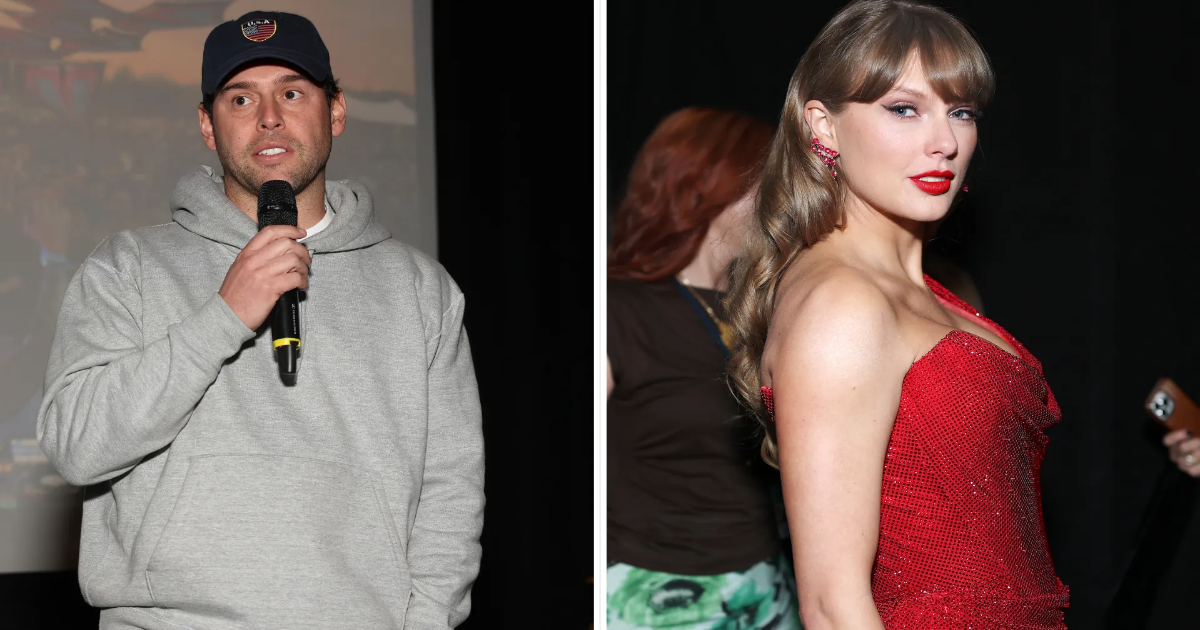
Taylor Swift has regained control of her music catalog six years after a controversy surrounding her masters and retired music manager Scooter Braun.
Braun, a high-profile industry veteran who has managed the careers of pop stars from Justin Bieber to Ariana Grande, is at the middle of the dispute that pushed Swift to rerecord four of her albums.
Swift announced in an emotional letter on her website Friday, May 30, that every aspect of her career – including videos, concert films, art, photography and unreleased materials – is now under her control.
“To say this is my greatest dream come true is actually being pretty reserved about it,” Swift wrote, in the apparently handwritten note that eagle-eyed fans have already begun using as evidence of a new project.
“I am happy for her,” Braun said in a May 30 statement to USA TODAY, following the masters announcement.
Need a break? Play the USA TODAY Daily Crossword Puzzle.
But Braun’s sentiment comes after a bitter clash over the rights to Swift’s music.
Taylor Swift owns her music catalog following masters controversy with Scooter Braun
Taylor Swift, Scooter Braun masters controversy, explained
Swift’s journey to owning the rights to her material stems from an acrimonious dispute with Braun after he purchased Big Machine Records – home to Swift’s initial six albums – in 2019. Swift has maintained she tried to buy back her masters at the time, but Big Machine presented a convoluted contract that stripped her rights to her music.
Could a Taylor Swift new album be next? The ‘TS12’ Easter eggs in her letter
In 2020, Swift began rerecording her back catalog and released a “Taylor’s Version” of “Fearless,” “Red,” “Speak Now” and “1989,” which enabled her to own the new masters and licensing of her songs. Her current label, Republic Records, a subsidiary of Universal Music Group, has released all of her albums since, starting with 2019’s “Lover.”
Braun has since attempted to address the elephant in the room at different points.
In a 2019 interview with Billboard, Braun said he first met Swift when Bieber, then his client, opened for her Fearless tour in 2010. That same night, Braun also met Scott Borchetta, who would go on to sell Braun his record company, Big Machine Label Group – and by extension, the masters of Swift’s hits.
“Our stories were similar,” Braun told Billboard of Swift. “Everyone at Big Machine – Taylor was kind, Scott was kind – everyone was kind to me and Justin when we were doing that show, and you don’t forget those things. I never forgot that, and we started a friendship.”
But the friendship didn’t extend after the sale of her masters, and Swift accused Braun of “incessant, manipulative bullying,” calling the deal her “worst case scenario” in a lengthy Tumblr post aimed at shedding light on the dispute for fans.
At one point in 2024, Braun posted on Instagram that he had “finally watched” the Max documentary “Taylor Swift vs Scooter Braun: Bad Blood,” which detailed the duo’s long-running feud. He took things a step further on his Instagram story by resharing a TMZ post about a star-studded celebrity bash hosted by Swift for best friend and “It Ends with Us” actress Blake Lively. He captioned the Instagram story, “How was I not invited to this?!?” and added the hashtag, “#laughalittle.”
Braun retired as a music manager in 2024, a year after reports emerged that many of Braun’s A-list clients were parting ways with him.
Taylor Swift’s Shamrock Capital music purchase allows her to own masters
Swift credited Shamrock Capital, the private equity firm that purchased the master rights to Swift’s first six albums from Braun‘s Ithaca Holdings in 2020, for giving her the opportunity to purchase every aspect of her career work.
“All I’ve ever wanted was the opportunity to work hard enough to be able to one day purchase my music outright with no strings attached, no partnership, with full autonomy,” she wrote.
“I am extremely heartened by the conversations this saga has reignited within my industry among artists and fans,” she wrote, noting that she’s proud of new artists who negotiate in their contracts to own their master recordings.
Swift ended her memo with outright joy.
“The best things that have ever been mine … finally actually are.”
Contributing: Anna Kaufman, Brendan Morrow, Charles Trepany
